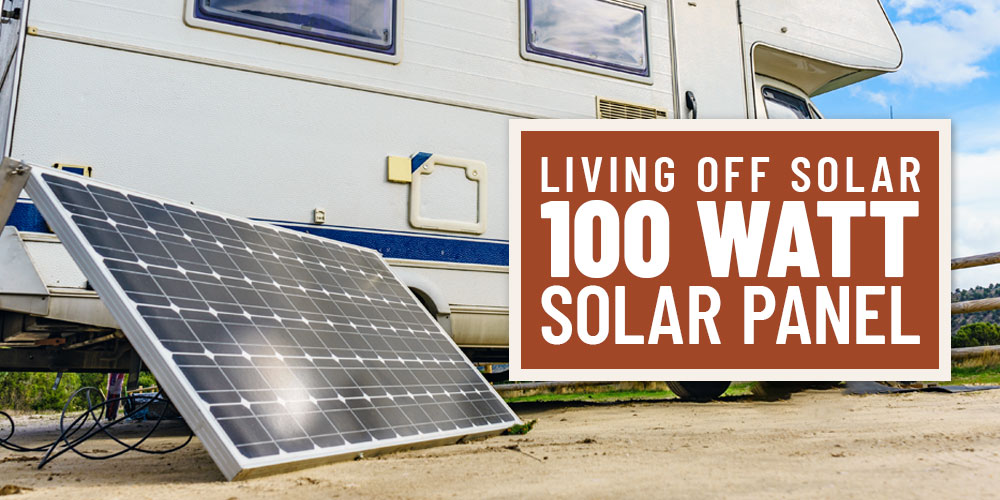
NAVIGATION
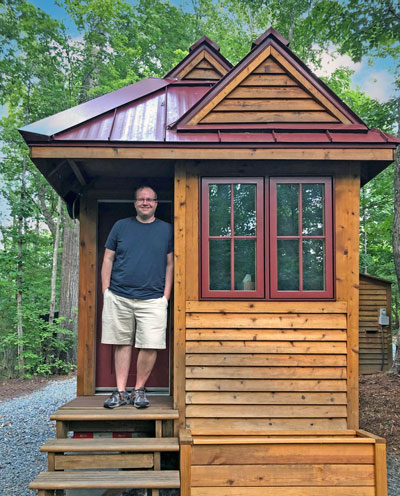
Hi, I’m Ryan
I’ve been living completely off-grid for over a decade. Throughout these years I’ve been powering my tiny house with solar panels, and I’ve gained a lot of valuable experience and perspective on solar power. Today, I’m happy to be able to give you the full picture on going solar.

If you’re wondering how much a 100-watt solar panel powers, you’ve come to the right place. Solar energy is an efficient way to generate electricity, save money, and help the environment all at the same time. Understanding the capabilities — and limitations — of a 100W solar panel is important when determining exactly what a 100W solar panel can do for you.
In my research, I learned that a small 100-watt solar panel is primarily used by campers, RVers, boaters, and the like for charging small electronic devices. Inexpensive and powerful, the 100W might be what you’re looking for, depending on your energy consumption needs.
What Is A 100W Solar Panel?

A 100-watt solar panel is a photovoltaic panel with a maximum rating of 100 watts. A solar panel is rated by the amount of power it creates during standard test conditions.
 These conditions include the intensity of the sun, the angle of the sun hitting the panel directly, the temperature, and other criteria. In optimal sunlight conditions, a 100W panel can generate 100 watts of power. As an added bonus, a 100W panel measures just about 10 square feet, making it a good choice for portability.
These conditions include the intensity of the sun, the angle of the sun hitting the panel directly, the temperature, and other criteria. In optimal sunlight conditions, a 100W panel can generate 100 watts of power. As an added bonus, a 100W panel measures just about 10 square feet, making it a good choice for portability.
I’ve utilized 100-watt solar panels while camping and on the go and have discovered that solar is my preferred method to power my devices. A 100-watt panel is also a nice entry point if you’re looking to go off-grid with smaller appliances and introduce renewable energy into your life.
How Much Does A 100-Watt Solar Panel Cost?

Due to its compactness and smaller energy output, the 100-watt solar panel is inexpensive and cost-efficient. On average, a standalone panel costs between $100 and $200. A solar panel kit — which contains all the necessary hardware to set up a power system, including panels, inverter, charge controller, and wiring — runs anywhere from $150 to $300.
What Will A 100-Watt Solar Panel Run?

I’ve found a 100-watt solar panel can power a variety of small electronics and handheld devices that need 100W or less to run.
For example, a 100-watt solar panel can run these items
- Chargers (laptop, tablet, phone)
- LED lamps
- Wireless internet router
- Portable Fan
- Small television
- Mini Fridge
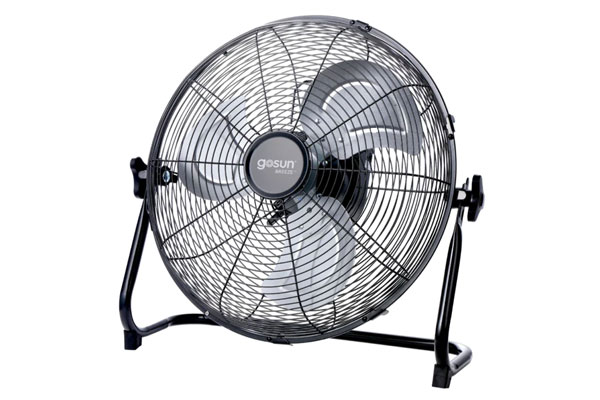
So long as the collective wattage doesn’t exceed 100 watts per hour you can run these items together.
This size solar plan is a great option to power your most basic electronic needs when you’re outdoors. If you enjoy hobbies such as hiking or camping and need to charge your electronics on the go, the 100-watt solar panel is a great addition to your gear.
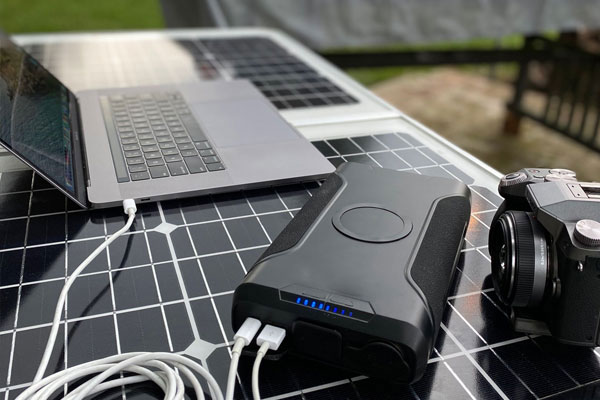 It’s also a cost-efficient starting point if you want to dip your toes into off-grid living or renewable energy generation on your homestead. This type of solar panel provides enough energy to allow you to run an LED TV with a maximum dimension of 42 inches, plus your streaming device and cloud-based voice service all at once. You could also power a single ceiling fan along with an air purifier if you’re looking to ease into off-grid living by working on your ambiance.
It’s also a cost-efficient starting point if you want to dip your toes into off-grid living or renewable energy generation on your homestead. This type of solar panel provides enough energy to allow you to run an LED TV with a maximum dimension of 42 inches, plus your streaming device and cloud-based voice service all at once. You could also power a single ceiling fan along with an air purifier if you’re looking to ease into off-grid living by working on your ambiance.
That said, this type of solar panel isn’t powerful enough to power your entire tiny home. It doesn’t draw in sufficient solar power to run any of the larger appliances you may need on a daily basis, like an A/C unit, a refrigerator, or even a toaster. So, if you plan to go off-grid entirely as I did, a 100W panel might not be the best choice for you.
Before making a decision, you should first take a close look at your electronic needs and your off-grid goals. Take stock of what appliances you have and need to power. A 100-watt solar panel could power a low-wattage mini refrigerator and portable fan at the same time, for example.
However, how long they run for would depend on how much energy you have stored in your battery. The battery is where the captured solar energy will be stored to use while you’re off-grid. Say your solar panel can generate roughly 400 watt-hours of energy — this means you’d be able to run your mini fridge and portable fan at the same time for about 4 hours.
What You Can (And Cannot) Run On A 100W Solar Panel
| Item | Watts |
|---|---|
| LED Light Bulb | 10 |
| Wi-fi Router | 10 |
| Tablet Charger | 15 |
| Extractor Fan | 20 |
| Portable Fan | 20 |
| Air Purifier | 25 |
| Cell Phone Charger | 25 |
| Computer Monitor | 50 |
| Television (22” LED) | 50 |
| Television (42” LED) | 60 |
| Ceiling Fan | 60 |
| Laptop Charger | 65 |
| Portable Mini Refrigerator | 70 |
| Light Bulb (Incandescent) | 75 |
| Desktop Computer | 100 |
| Television (49″ LED) | 100 |
| Television (25” Color) | 150 |
| Humidifier (13 Gallon) | 175 |
| Item | Watts |
|---|---|
| Electric Blanket | 200 |
| Vacuum Cleaner | 200 |
| Dehumidifier | 250 |
| Television (82” LED) | 290 |
| Slow Cooker | 350 |
| Blender | 500 |
| Clothes Dryer (Gas) | 700 |
| Refrigerator / Freezer | 700 |
| Garage Door Opener | 800 |
| Toaster | 850 |
| Coffee Maker | 1,000 |
| Microwave | 1,000 |
| Central A/C (10,000 BTU) | 1,500 |
| Dishwasher | 1,500 |
| Electric Kettle | 1,500 |
| Washing Machine | 1,800 |
| Electric Oven | 2,000 |
| Electric Stove (8″ Element) | 2,000 |
Is A 100-Watt Solar Panel Enough For Going Off-Grid?

Like I mentioned, a singular 100-watt solar panel is not enough for going off-grid. It’s not sufficient on its own for powering a tiny house, but a couple of them linked together could be enough for a weekend off-grid on your sailboat, RV, or campsite.
How Many Batteries Can A 100-Watt Solar Panel Charge?
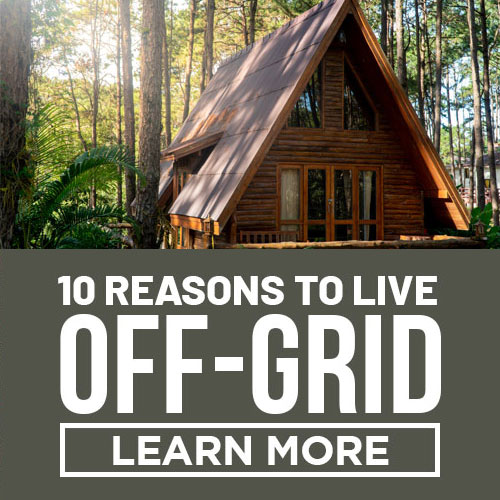 In my experience, I’ve found that a 100-watt solar panel can charge a single 12-volt battery in a day. In most cases, people who have a 100W solar panel use 12-volt batteries. To charge fully, the battery would call for at least eight hours of direct sunlight in optimal conditions. Meaning, the panel should be in direct sunlight, and the thermometer should be about 77˚F.
In my experience, I’ve found that a 100-watt solar panel can charge a single 12-volt battery in a day. In most cases, people who have a 100W solar panel use 12-volt batteries. To charge fully, the battery would call for at least eight hours of direct sunlight in optimal conditions. Meaning, the panel should be in direct sunlight, and the thermometer should be about 77˚F.
But in real life, where the weather is always changing, your 12V battery might take 10 hours or more to reach full charge via a 100W solar panel.
Ultimately, determining whether to invest in a 100-watt solar panel will depend on what you need to power and for how long. For context, with a 12V battery fully charged, you’d be able to run your small electronics for about 12 hours. Collectively, these items should take up about 100W of energy, so you’d be able to charge your laptop, smartphone, and run a Wi-fi router for most of the day.
What Else Is Needed To Use A 100-Watt Solar Panel?

Thanks to its compact and flexible nature, a 100-watt solar panel is easy to set up and get going. You don’t need much equipment — here are the five basic components of a 100W solar panel:

Many of the 100W solar panels on the market are portable. If you’re looking to install these, you will also need the hardware to help you fix it in place. Then, all you have to do is connect the solar panel to the charge controller, the charge controller to the battery, and the battery to the power inverter.
How Much Power Does A 100W Solar Panel Produce?

One of the first things I learned is that solar results can vary. It’s true that a 100-watt solar panel can produce up to 100 watts of power per hour. However, as discussed, this rating was earned in a lab with standard controlled testing conditions.
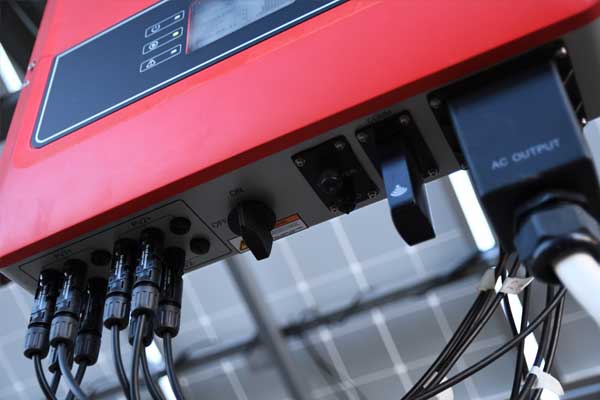
Consider the fact that most areas regularly receive about three to five hours of peak sunlight every day. Therefore, on average, a 100-watt solar panel can produce 300 to 500 watt-hours of electricity in a single day. This is a ballpark number, depending on the conditions, and actual solar output can be higher or even much lower.
How Much Is 100 Watts Of Power?

Watts are a measure of power. It measures a solar panel’s performance and how much sunlight it can convert into power.
100W is a modest amount of power. It’s sufficient for small kitchen appliances, charging stations, and portable electronics.
The truth is, it took me a while to understand all the terminology for going solar. You have to learn a whole new language that includes watts, volts, and amps. No worries, though — you’ll get it, and before you know it, you’ll be a solar expert too.
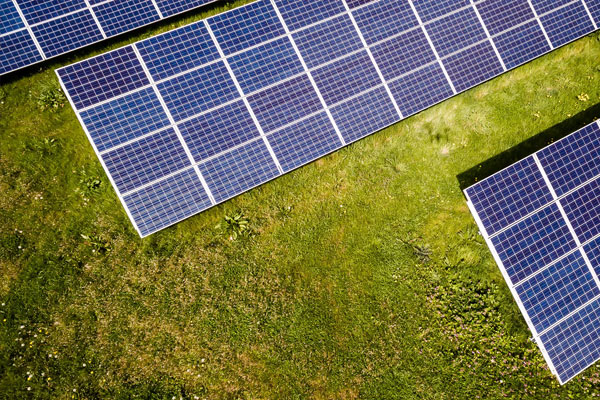
How Many Volts Do 100W Solar Panels Produce?
A volt is a measure of the “pressure” of electricity that flows through a circuit. A typical 100W solar panel can produce anywhere from 12 to 24 volts. This is a common range for a 100-watt voltage output and can suit a wide range of applications.
How Many Amps Do 100W Solar Panels Produce?
An amp (short for ampere) is a measure of how much electricity runs through a circuit. A 100W solar panel can produce anywhere from 4.2 to 8.3 amps.
How Many kWh Does A 100-Watt Solar Panel Produce?
A 100-watt panel that operates at full capacity for an average of four hours of sunlight produces 0.4 kWh. A kilowatt-hour measures how much electrical the panel can supply. It stands for one kilowatt (or 1,000 watts) of power for one hour. In this case, a 100-watt solar panel would produce a total of 400 watt-hours.
How Many 100-Watt Solar Panels Do I Need?

As an avid camper and homesteader, I opted for two portable panels to power my campsite and meet my needs. Keep in mind, though, that I was camping by myself. More people require more energy, and that all plays into exactly how many panels you’ll end up needing.
Normally, a house requires 5–10kW of power to operate essential appliances. You would need 50 to 100 of these 100-watt panels to achieve that level of production, which is neither cost nor space efficient.
However, if you want to generate off-grid power for a road trip or as a backup for essential electronic devices at home, a 100-watt solar panel could be perfect to meet your needs. For RVs and boats, you would be pretty set connecting three 100W panels.
What Can A Single 100W Solar Panel Run?
We’ve talked about the things a 100W solar panel can power and what I’ve successfully powered with one. If your goal is to power the electrical appliances in your home, you could potentially link several panels together, but it would be more cost-efficient to invest in higher wattage.
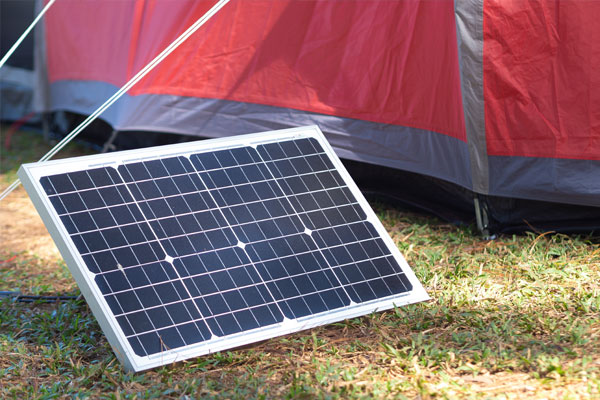 When considering which panel to buy, the most important criterion is to evaluate your electricity consumption to understand what you’ll require out of your solar panel.
When considering which panel to buy, the most important criterion is to evaluate your electricity consumption to understand what you’ll require out of your solar panel.
Keep in mind that results vary. Electronic devices might be slightly different, so you’ll want to list out your needs.
I’ve had great success solar powering my devices, but it doesn’t hurt to double-check your needs before investing and counting on a 100-watt panel to do the trick.
Your Turn!
- What’s your plan for utilizing 100W solar panels?
- Have you ever used 100-watt portable solar panels while enjoying the outdoors?



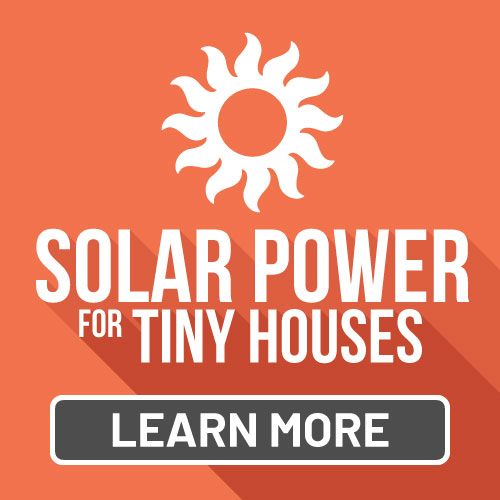
Thank you for this important info to consider !!
Very impactful, wish I could contact you if i have further questions to ask.
Great article.
Thank you for writing it. It helped me understand more about solar setups.
Excellent article! Thank you!
Can you help me start a starter solar company in West Afrixa. I am an environmental consultant. Want to go back home on retirement.
Good info. Thanks
Good info.
A little coffee in-cup coil is 200w – 300w and is slower but can work more readily with solar power. Also sous vide wand (same thing, bigger) 400w – 800w and can even heat a bath if you start it 2-4h in advance…
Thanks! 👍
I want to run a a c unite
I do also 5000 w or 5,000 BTUs I think it is for a small cabin in the woods I want to run a 24/7 as they replied to you yet?
Great hands on guidence for beginners like me. However, I think I will want a system Are there 200-300 w. Panels packages available and reliable that you can comment on? Or do you recommend adding on 100w. Panels in series? But would that require larger capacity. Thanks for the article. I provided my email, looking forward to more useful info.
Great article 👏
I want to run a small 5000 BTU air conditioner 24/7 on my cabin in the woods probably 4 days a week! It’s not insulated it’s just painted white so it’s the only insulation I got and the summertime is the only time I want to do that but I’m down here in Florida where summertimes you’re around LOL so what would you recommend besides 100 w do they make 500 w panels?
Great Idea. I am considering the idea for my building in Africa (Nigeria). What is surface area of a 100 watt solar panel?
Thanks for the very detailed info you supplied, however, I get lost in your conversion when going off grid. Can you explain the conversion a little clearer when it comes to multiple panels to go off grid.
you state it would take 50 to 100 panels to power a house that requires 5 to 10 Kwh. To me that is 5to 10 Kwhs per day, not per hour.
My monthly electric bill says I use 200 Kwh per month. That would be about 6.7 Kwts per day would it not, or 6700 watts per day on average, or, about 280 watts per hour on average. Now that would be like 500+ watts per hour maybe at peak times and only 100+ watts per hour at night, but still only average of 280 wats per hour.
Wouldn’t 3 to 5 (or 6 to 10 if you go by the rule of 5) panels be efficient enough to run a house during the daytime hours then, and a full battery back up with 1 to 2 Kwh to run through the night.
Or, am I not calculating this properly as a Kwh breakdown per hour/day/month.
Thanks in advance for any relies.